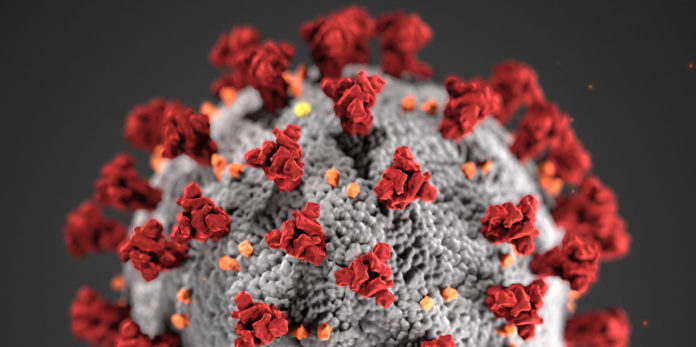MONTEREY COUNTY — California residents have been advised to stay indoors, and only leave their home for essential items or services, since the statewide stay-at-home order went into effect March 19 to help combat the novel coronavirus (COVID-19) outbreak.
Essential businesses, however, can stay open during this time, while others must close or restrict their operations. For those who are unsure what should or should not be open, Monterey County has released a list of the types of businesses that are “essential” and “nonessential” in the county.
Businesses that may remain open
• Agriculture and related businesses and industries
• Airlines
• Alarm and security companies
• Animal boarding, pet supply
• Auto repair, parts and service
• Banks and other financial services
• Blood donation centers
• Businesses that supply supplies or items required to work from home
• Cannabis retailers
• Cemeteries, funeral parlor and internment services
• Childcare facilities (with limitations)
• Community gardens
• Construction, architecture, engineering services — all active construction in progress and all work related to housing, care facilities and essential infrastructure may continue
• Convenience stores
• Distribution and delivery of essential consumer or business goods
• Domestic violence shelters
• Drug stores
• Dry cleaners and laundromats
• Electricians
• Essential government services
• Exterminators
• Farmer’s markets, produce stands
• Food and goods delivery services
• Food banks and other organizations that provide assistance to the disadvantaged
• Food preparation facilities
• Gas stations
• Grocery stores
• Hardware stores
• Home-based care
• Home repair and maintenance (plumbers, electricians, landscaping, pool service, repairs)
• Homeless service providers, shelters
• Hospitals, clinics and medical offices
• Hotels and motels, bed and breakfasts (for travel related to essential business, not vacation or leisure activity)
• Information technology support (providers, repair shops, etc.)
• Liquor stores
• Mailing and shipping services
• Manufacturing of essential consumer and business goods
• Media
• Moving companies (to move individuals, families, belongings to new residence)
• Online wholesale or retail sales
• Pharmacies
• Professional services (legal, insurance, title, accounting, mortgage brokers, payroll and others as needed to assist with legally mandated or essential services)
• Property management
• Public transit, buses, rideshare, taxis, Uber, Lyft
• Railroads
• Ranching and related businesses and industries
• Recyclers, including electronics recyclers
• Re-entry or rehabilitation facilities
• Residential care facilities
• Restaurants (with limited services; see below)
• Schools — public and private (distance learning, administration and food only)
• Solid waste facilities and haulers
• Storage facilities
• Trucking and moving services
• Utility providers — water, power, gas, cable, internet, cell service
• Veterinarians
Businesses open for limited service
• Restaurants, coffee shops, bakeries, creameries, smoothie bars, delis, etc. (serving food via drive-through, delivery or pick up)
• Churches (counseling, providing relief, and broadcasting religious services permitted — but no congregations of people)
• Real estate sales and marketing (closings and telephonic activities permitted)
• Tasting rooms, breweries, distilleries (production/bottling may continue, pick-up and delivery are permitted, no on-site consumption)
• Schools — public and private (distance learning/online, housing, administration and food only)
• Wine-tasting rooms for off premises sales and club pick-up only
• Bicycle repair shops (drop off/pick up only)
Businesses to close their physical locations
The following business operations may continue if they can be provided online via video, email, YouTube, etc. with no in-person contact:
• Amphitheaters, concert halls, performing arts centers
• Amusement arcades
• Archery ranges, shooting ranges
• Arenas
• Art galleries
• Athletic supply and sporting goods
• Auto sales (in person)
• Banquet halls
• Barbers, hair salons or nail salons
• Bookstores
• Botanical gardens
• Bowling alleys
• Car washes (full service)
• Casinos and cardrooms
• Climbing gyms
• Clothing stores
• Craft sales
• Dance halls/studios, dances
• Day spas, massage parlors
• Fairs, public exhibitions
• Fitness centers, gyms, tennis clubs
• Golf courses (full and miniature)
• Gun shops
• Health clubs, yoga centers
• Historical sites
• Libraries
• Model homes
• Movie theaters, drive-in theaters
• Museums
• Music events or nightclubs
• Pool and billiards lounges
• Private social clubs
• Public swimming pools
• Raceways
• Rodeos, public equestrian events
• Roller skating rinks, roller derby
• Second hand/thrift stores
• Smoke and tobacco shops (that don’t sell cannabis)
• Sports stadiums and facilities (all)
• Swap meet/flea market
• Tattoo and body-piercing parlors
• Trampoline and bounce houses
• Water parks
• Zoos











